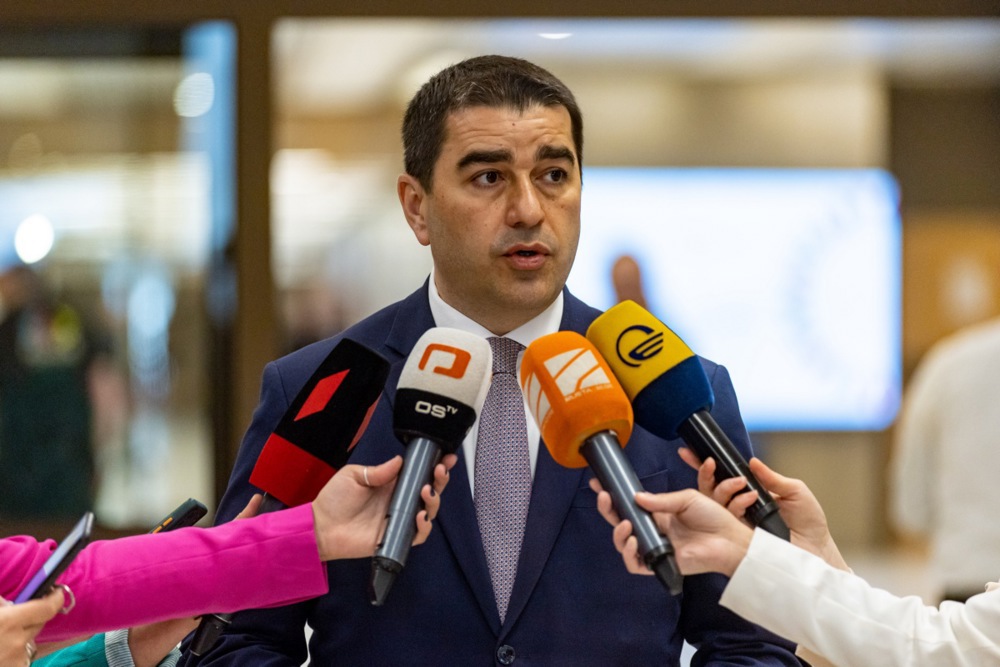The European Commission has referred Hungary to the Court of Justice of the European Union, claiming its legislation on the Defence of Sovereignty was in breach of EU law.
According to the Commission on October 3, the legislation risked violating fundamental human rights and was designed to “silence” the opposition.
Hungary claimed that it did not infringe EU law and that the concerns raised were unfounded.
The “Sovereignty Bill” was the result of events that occurred during the 2022 elections in Hungary, where the opposition received large sums of money from an organisation linked to the US Democratic Party.
According to the ruling Fidesz party, attempts were made to influence the elections directly with funds from abroad.
This was later confirmed by a national security investigation, which revealed support for the unified left-wing opposition.
Despite all this, Brussels did not agree with the reply it received from the Hungarian authorities on its objections and said the law violated the right to respect for private and family life, freedom of expression and information, freedom of association, the right to legal professional privilege and the presumption of innocence.
The Commission also considered the legislation went against several fundamental freedoms of the internal market, the e-Commerce Directive, the Services Directive, as well as EU data protection legislation.
Brussels also warned that an agency created to monitor and investigate perceived foreign interference in politics, the Sovereignty Protection Office, was entrusted a too “broad discretion concerning investigations, notably on access to information, empowering the Office to intervene in an intrusive manner in investigations”.
“The law requires extensive publicity about the individual investigations and their findings. This will have negative consequences for the concerned entities including a stigmatising effect,” the Commission claimed.
“The broad powers and discretion of the Office will affect a wide range of persons and entities, including civil society organisations, media outlets and journalists in a disproportionate manner.”
Commission spokesperson Jördis Ferroli said on October 3 that the Commission had not requested interim measures, such as a temporary suspension of the law. A final decision is expected in the coming years.
Hungarian Prime Minister Viktor Orbán is scheduled to address the European Parliament in the week starting October 7 when he is due to present the programme of his country’s presidency of the Council of the European Union.
Hungary’s sovereignty law, which came into force in December 2023, calls for the “criminalisation” of foreign funding for political parties and the establishment of an “oversight authority” for NGOs.
It was further designed to curtail “any electoral cheating and foresees sanctions for anyone using foreign funds in a campaign”, potentially leading to three years of imprisonment.
A spokesperson for the Commission told Brussels Signal in February this year: “The set-up of a new authority with wide-ranging powers and a strict regime of monitoring, enforcement and sanctioning also risks to seriously harm the democracy.”
Máté Kocsis, the head of the parliamentary group of the Hungarian Fidesz party, said the legislation “closes the door to any electoral cheating and foresees sanctions for anyone using foreign funds in a campaign, potentially leading to three years of imprisonment”.
The law targets NGOs and other groups whose “activities involving foreign funding may influence the outcome of elections” or that “engage in or support activities involving foreign funding to influence the will of voters”.
It also claims to monitor “attempts at disinformation”, sounding similar to EU-style institutions.
If the European Court of Justice agrees with the Commission, Hungary will have to amend the law or face European fines.
‼️BREAKING‼️
EU-Commission to sue Orban's Hungary over his Putin-style 'sovereignty law'.About time! pic.twitter.com/z8VtT6FCUH
— Daniel Freund (@daniel_freund) October 3, 2024
During the 2022 elections, the then-prime ministerial candidate of the unified opposition, Peter Márki-Zay stated in an interview with the Magyar Hang news outlet that several million dollars arrived during the election campaign from the US, something that is explicitly prohibited the other way around.
Márki-Zay later admitted having received around 2 billion forints (about €5.3 million) in foreign funding, mostly from the US-based left-wing NGO Action for Democracy, which has close ties to the US Democratic Party.
Márki-Zay, the former prime ministerial candidate of the opposition, took advantage of a loophole in Hungary’s party financing regulations, which only prevented political parties from accepting foreign funds, not civic groups.
Ágnes Kunhalmi, a well-known Hungarian Socialist MP, confessed to that during the campaign, saying “they [Americans] were forced to sell a product [policy] that was foreign to Hungary”.
That resulted in coercion by “American strategists who knew very little about Hungarian history”, she said, adding: “It was deplorable what US advisers did to constantly incite Hungarian society against Putin.”
BREAKING: national security committee of ?? parlament declassified main findings of the report on foreign interference in #Election2022.
Vast resources 3 bn HUF (7.8m USD) provided from ??USA to opposition parties, NGOs, publishers via #ActionforDemocracy.#ElectionIntegrity pic.twitter.com/hib33fsrCD— András László MEP ?? (@laszloan) November 23, 2022





